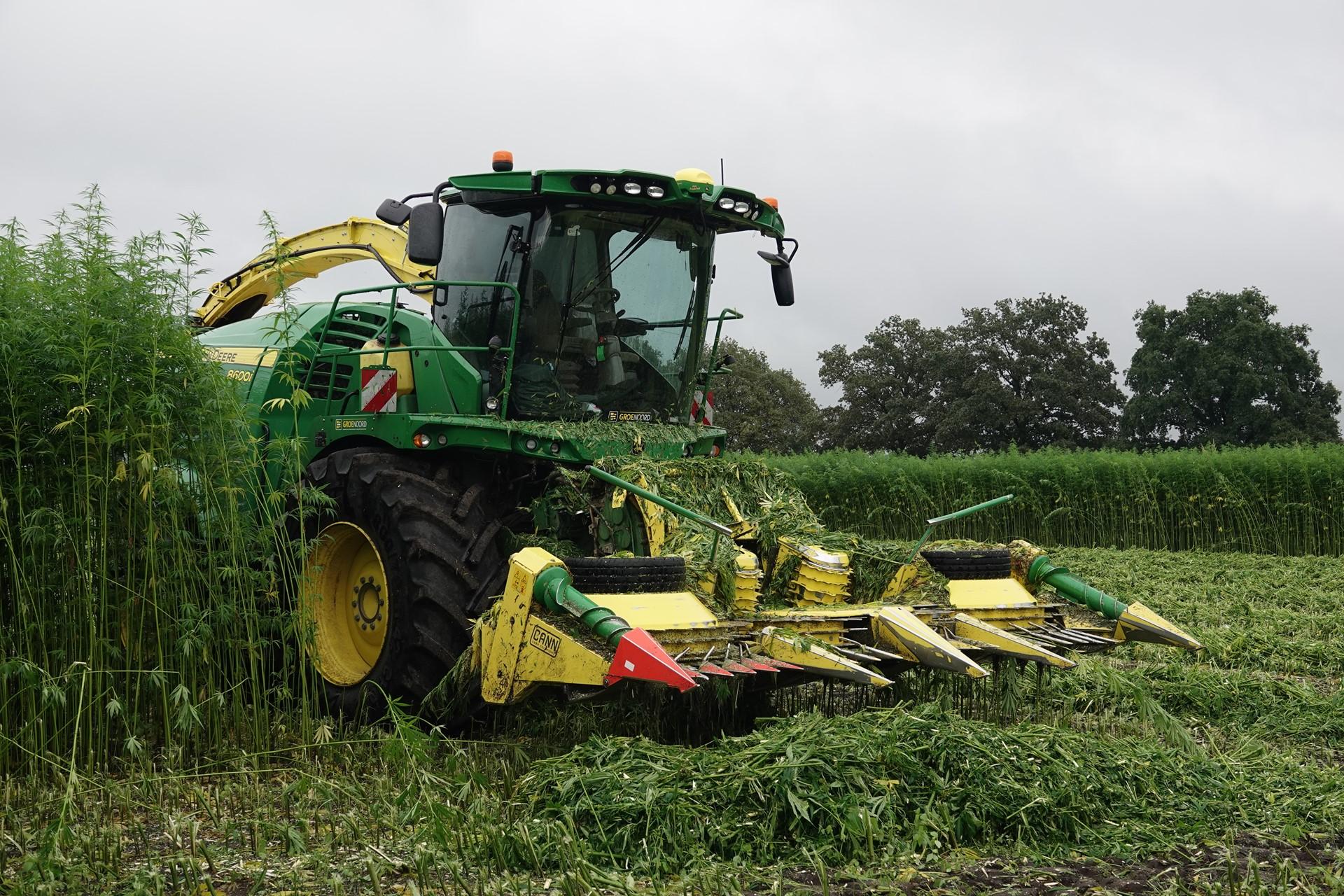This week is the national Week of the Circular Economy. This week is the largest national inspiration and networking event for and by (budding) circular entrepreneurs. Also within the agricultural sector. A good moment for a conversation with LLTB project leader Circular Economy Patrick Lemmens about the state of affairs within this theme.

Within the development towards a circular economy, alternative raw material supply and consumption are of great importance. A change that, according to LLTB project leader Patrick Lemmens, takes time and effort in a market that is only cautiously moving along. Too often it is forgotten that agriculture can play a crucial positive role in the sustainability challenges. After all, the flexible farmer does not sit still and actively responds to the new developments,' says Lemmens. In this Circular Economy Week, an overview of some developments that respond to society's challenges and respond to a changing market.
Organic fibers
Substituting fossil raw materials with renewable alternatives. A development that offers many advantages. 'Especially from the construction sector and the development of peat-poor substrates, there is a strong commitment to this switch. The potential of crops such as fiber hemp, miscanthus and even bamboo has long been discussed. Currently, there actually seems to be a turnaround. Chain initiatives driven by the demand side are now getting off the ground. Admittedly still relatively small, but with perspective," Lemmens observes. The advantage of most of the targeted crops is that, in addition to being a sustainable and attractive alternative for construction companies, among others, they contribute on several fronts to the sustainability of agriculture itself. 'They are often crops that contribute directly to soil health and biodiversity. They can also be cleverly integrated into the crop rotation,' outlines the project leader. 'But not everything is right yet. The market is developing but very unruly and still too limited. It is searching for forms of cooperation where each link in the chain gets the fairshare of the sustainability commitment and where agriculture is recognized as a sustainable supplier of raw materials.'
Protein Transition
The supply in the supermarket is changing rapidly, partly because of a steady growth in regional products with vegetable proteins. Lemmens: 'Because of this development, the cultivation of legumes is increasing in the Netherlands. For example, thousands of hectares of field beans are already being cultivated, with a growing demand for humane application. This offers economic prospects for cultivation. The current balance for field bean for human food is about twice as high as for livestock food.' For now, a significant portion of the crop is used as an alternative regional protein source for livestock farms because the market for humane food is not yet large enough. As a result, the animal sector plays an important role in the protein transition. 'Without sales to sustainable livestock farming, the transition to the use of more vegetable protein would possibly take even longer. Dutch agriculture can therefore contribute to and benefit from the protein transition across the board. Provided that large parties also continue to opt, at least in part, for raw materials 'from close by',' says the project leader.
.
Challenges
.It all seems simple. Dutch agriculture can contribute directly to various societal transitions and provide both food and non-food industries with alternative raw materials. The sector is already picking up this gauntlet. 'Crucially, the question remains whether the big promises will be realized in the coming years,' the LLTB project leader says. 'In addition, the global playing field is of great importance. Field beans from France are often just as 'regional' for large food companies in the Netherlands as those from their own country. Even those French beans already offer many sustainability advantages over imports from other parts of the world. Further 'localization' of raw material chains should therefore be accompanied by an active incentive and reward policy for their use.' In order to put the circular economy in Limburg better on the map and draw attention to it, the LLTB is a partner in 'Circular Economy Limburg (CEL)'. This awareness program is an initiative of the Province of Limburg.
This is an article from Nieuwe Oogst, edition Friday, March 15.